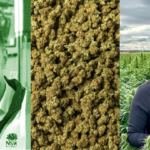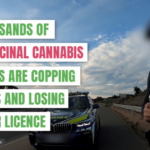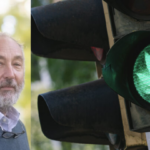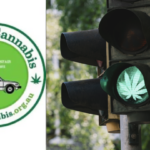High Time: NSW Government to Consider Passing Medicinal Cannabis Driving Defence

Unlike other prescription drug users, those who are prescribed medicinal cannabis in New South Wales can lose their driver licences and obtain a criminal conviction if they are found to be driving with any trace of the medicine in their system, regardless of whether the concentration is capable of impairment. And while drivers have in the past relied on the defence of honest and reasonable mistake to beat drug driving charges, the highest criminal court in NSW ruled on 2 February 2024 that drivers cannot rely on that defence. However, this could be about to change.
Legalise Cannabis NSW MLC Jeremy Buckingham recently told the Daily Telegraph that he’d raised enacting a medicinal cannabis driving defence with the Minns government, post a 2024 NSW Drug Summit recommendation, and on receiving a commitment from Labor that it would be progressing such legislation later this year, the MLC has decided to withdraw his own amendment bill.
The issue with cannabis medicine users being charged with drug driving whilst not under the influence of the drug has existed since October 2016, when medicinal cannabis was legalised nationwide. The problem in NSW, as in most other jurisdictions, is that drug driving tests don’t determine levels of a drug that indicate impairment, but rather they just test for mere traces of it.
The NSW roadside drug testing regime had long been the focus of a law reform campaign, because it had always led to drivers being charged and losing their licences under circumstances when they weren’t impaired, but minute traces continued to turn up a positive test result.
The long-term drug driving reform campaign then shifted its focus from the unjust laws to ensuring that those now using a legally prescribed medicine weren’t being unjustly penalised for doing so.
So, the NSW government finally contemplating enacting a cannabis driving defence is not only welcomed as it will bring about an end to a legal anomaly that’s long existed on the books, but since a 2023 NSW court ruling resulted in the removal of any ability for a driver to defend themselves against a drug driving charge, no medicinal cannabis drug driving defence has become unjustifiable.
Zero-tolerance law
Section 111 of the Road Transport Act 2013 (NSW) contains the offence of drug driving, which is also known as driving with the presence of certain drugs (other than alcohol) in oral fluid, blood or urine. And a first-time offender is given a $682 on-the-spot fine and automatically loses their licence for a three month period.
Such a first-time offender can, however, challenge the charge in court, but if unsuccessful it can lead to disqualification being raised to 6 months and the maximum fine that can be applied in court is $2,200. Yet, the 2023 NSW court ruling that has resulted in no available defences for a charge of drug driving has likely lessened the number of people attempting to challenge their charge in court.
The NSW roadside drug driving regime has always tested for amphetamines, MDMA and THC, the psychoactive component of cannabis, since enactment in 2007, while cocaine was added to the mix of substances in 2018. And as the law indicates, police are testing for any presence of these drugs in a person’s system, and this is done on the side of the road via a sample of a driver’s saliva.
This system of testing lies in stark contrast to random breath testing for alcohol, which tests a sample of a driver’s breath for levels of alcohol in their system. A driver is only charged with drink driving if it has been shown they have over a certain concentration of alcohol in their blood, which indicates that they are too intoxicated to be driving a car on the road.
The drug driving method of charging people over any presence of a select few drugs in their system is why there’s been a long-term campaign against these laws, with the major issue being that these drugs can remain in a person’s system long after intoxication, and when it comes to cannabis, this is of particular concern because traces of the substance can be present for weeks after consumption.
Ending an illegitimate practice
A yearslong campaign led the Turnbull government to legalise the cultivation, production and use of cannabis medicines in 2016, and the medicine is now commonly used for ailments such as cancer, PTSD and chronic pain. And there were an estimated 700,000 Australians using the legally prescribed medicine by 2022/23.
The lack of government action on legislating a defence for medicinal cannabis users who drive became an obvious issue as soon as the federal legislation had been passed, and the long-term resistance to legislating a defence for people using a substance that had been prescribed to them, has always been put down to the stigma surrounding cannabis use as it has long been an illegal drug.
This has seen the NSW parliament vote down a number of attempts by the NSW Greens to legislate such a defence, along with a number of attempts in other Australian jurisdictions being knocked back.
The exception to this rule has been Tasmania, as it already had a medical defence that related to driving on its books, while Victoria recently passed a cannabis drug driving defence that took effect on 1 March this year.
Released in April, the 2024 NSW Drug Summit report recommended that the government enact “a medical defence for people using medically prescribed cannabis who are driving”, which should include “an option for police at the roadside or a court to assess the defence”, a set of guidelines should be developed by government agencies, and the law should be reviewed after 12 months.
The not unexpected appearance of a medicinal cannabis drug driving defence on the list of recommendations produced by the chairs of the 2024 NSW Drug Summit is likely the nudge that the NSW government needed to provide legitimate users of a legitimate drug with a way to hold onto their licences, which are currently still being illegitimately suspended.
There’s no excuse
In a ruling that made many a judge fall off their bench, NSW Local Court Magistrate Julie Zaki ruled on 26 July 2023 that drug driving is an absolute liability offence, and not a strict liability offence as had always been the case prior to this ruling.
A strict liability offence is the type of crime that doesn’t require the prosecution to prove that a defendant intended to break the law or even knew they were, but the accused can argue the defence of an honest and reasonable mistake of fact, while an absolute liability offence again means the prosecution doesn’t have to prove intent, however, there is no defence available for such a crime.
And in another unexpected finding, the NSW Court of Criminal Appeal ruled on 19 February last year that drug driving is indeed an absolute liability offence, so no defence whatsoever is possible.
So, for drivers currently found with traces of their prescribed cannabis medicine in their system, who are then charged with drug driving, the prospects are currently entirely grim in terms of any just outcome.
Former NSW Magistrate David Heilpern was renowned for a number of controversial cannabis driving rulings circa 2016 that he handed down in Lismore Local Court, which saw those found with traces of cannabis in their system distinctly describing how they came to mistakenly be there, and these defendants were all acquitted.
On the finding that drug driving is now an absolute liability offence, Professor Heilpern told Sydney Criminal Lawyers that he was “extremely disappointed and surprised” by the ruling and the long-term campaigner for a medicinal cannabis driving defence underscored that the appeal outcome made the need for such a defence to be enacted “all the more urgent”.
“These are not people sitting in a car, smoking a bong and then going for a drive,” stressed Heilpern, now Southern Cross University Dean of Law and Chair of Discipline. “These are people who are significantly middle aged, using the drug for chronic pain and insomnia – a whole range of conditions – and they are much less affected than the medication that they were previously on.”
“Yet, they are criminalised, and now, the door has been shut to just about the only possible defence I can think of,” the professor warned.







